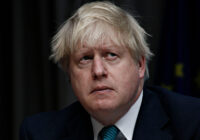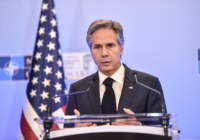Analyzing the character of Britain’s new prime minister, Atul Singh, in a delightful Fair Observer article that can only be described as “fair and balanced” in ways that Fox News has never attempted, calls Boris Johnson “the most charismatic politician of his generation.” Given Johnson’s career-long penchant for visual and verbal entertainment, this would seem justified.
In any case, the media have nearly unanimously agreed to attach that descriptor to Johnson, if only to explain the astonishing fact that, against all odds (and despite his endless oddities), he has managed to attain his lifelong ambition by becoming the latest tenant of 10 Downing Street and, in his mind, landlord of the nation’s politics.
To better understand how democracy has evolved in recent years, it may be time to ask ourselves — nearly a century after Max Weber launched the concept of political charisma — what we mean when using the word “charisma.” Boris Johnson provides an excellent case study to work from.
Here is today’s 3D definition:
Charisma:
A quality of personality that, in the past, identified a public figure as a leader, but in the age of television and social media identifies public figures as entertainers so obsessed with fame, power and money that a significant proportion of the public believe they are somehow admirable
Contextual Note
Atul Singh — the founder, CEO and editor-in-chief of Fair Observer — clarifies his characterization of Johnson’s charisma when he recounts that: “To those who support him, Johnson is witty, funny, charming, clever, insouciant, energetic and eloquent.” In other words, charisma, as it is perceived today, need not have universal appeal. Johnson’s charisma simply requires a group of people “who support him.”
The unique measure of charisma now appears to be the ability to force one’s way into the news cycle, either through a well-orchestrated media strategy, some spectacular (or unusual) public feats of prowess or, in most cases, a combination of both. To be deemed charismatic, a politician no longer needs to have qualities evident to everyone, even to those who oppose the politician’s platform, ideology or style. Today, those who are seduced by an individual’s charisma typically suspend their critical faculties. They isolate what they see as virtues and deliberately ignore or consciously repress what others may see as vices. Those who are not seduced tend to see such politicians as charlatans. In neither case do they adhere to the putative leader’s vision.
It’s easy to confuse charisma with charm. As Simon Jenkins writes in The Guardian: “Charm is politics’ deadliest weapon. It is not charisma, the authority to lead through an electrifying presence.” Jenkins has read Weber, who a century ago invented the concept of charismatic leadership which can be described as a quality “found in a leader with extraordinary characteristics of individual, whose mission and vision inspire others.”
In Weberian terms, a charismatic leader is seen as the head of any social or political movement, sometimes gifted with divine powers such as religious prophets and Gurus. Mahatma Gandhi was charismatic, as was Martin Luther King Jr. In politics, Franklin D. Roosevelt, Winston Churchill, John F. Kennedy, Fidel Castro and Hugo Chávez qualify as charismatic. So do Benito Mussolini and Adolf Hitler because they represented a vision, however perverse, to which people massively adhered.
For all their talent at seduction, neither Donald Trump nor Boris Johnson rise to the level of charisma as defined by Weber. As one commentator sums it up: the charismatic leader “is not only capable of but actually possesses the superior power of charisma to rally diverse and conflict-prone people behind him. His power comes from the massive trust and almost unbreakable faith people put in him.” Weber defines the charismatic leader as regarded by his followers as “of divine origin or as exemplary.” Few in Britain today, even among his fans, would agree that this is an appropriate description of Boris Johnson.
Historical Note
Jenkins makes an important point about Johnson: “He mesmerises punch-drunk Tories and disillusioned Labour voters alike. He emerges from his biographical record as incompetent, lazy, dissolute and a liar, yet the public’s response is that he is ‘our kind of liar’.” Many Americans feel the same way about Trump. But this is not leadership; it’s a special class of opportunism linked with a talent for personal marketing.
Tony Blair and Bill Clinton demonstrated a different kind of what we might call “near charisma.” They both articulated — however poorly and, for most people, unconvincingly — what some perceived as a goal for the nation or for all of humanity: the “third way.” Both were defined by their personal ambition more than by a shared vision of the future, and neither managed to construct a vision of the future that could stir the emotions of a majority of citizens and make them feel they were participating in history.
Johnson became prime minister through a vote that involved barely a tiny fraction (92,000) of the British population, not even 0.02% of those who are eligible to vote in an election (approximately 48 million). The nation thus witnessed the elevation of a new leader with a personal plan that was never seriously debated and is still not clear, even apparently to Boris himself, who prefers to talk divisively about his “DUDE” strategy (deliver, unify, defeat, energize) of delivering Brexit (feared by half of the nation) and defeating the Labour Party’s Jeremy Corbyn, while at the same time believe he can “energize” the nation to unify it. Not many Brits identify with the American concept of “dude.” Johnson does.
[newsletter class=”my_css_class” form=”1″]
The prime minister of the still somewhat “united” kingdom seems ready to unite England but leave Scotland, Northern Ireland and perhaps Wales to go their ways, a future that many observers see as possible under Johnson’s “leadership.” Apart from forcing through Brexit “do or die,” “come what may” and “may the devil take the hindmost,” Boris has articulated no vision of the future other than his intent to fulfill the nihilistic promise of Brexit.
A truly charismatic leader would have orchestrated his or her rise to power by defining the vision of what Britain could become and what it should become thanks to a concerted effort of the nation. Instead, Johnson has focused only on the negative pronouncement expressed by roughly one-half of those who voted in a shambolic referendum three years ago. This would be the first time a great historical vision could be reduced to a single word: “No!”
*[In the age of Oscar Wilde and Mark Twain, another American wit, the journalist Ambrose Bierce, produced a series of satirical definitions of commonly used terms, throwing light on their hidden meanings in real discourse. Bierce eventually collected and published them as a book, The Devil’s Dictionary, in 1911. We have shamelessly appropriated his title in the interest of continuing his wholesome pedagogical effort to enlighten generations of readers of the news.]
The views expressed in this article are the author’s own and do not necessarily reflect Fair Observer’s editorial policy.
Support Fair Observer
We rely on your support for our independence, diversity and quality.
For more than 10 years, Fair Observer has been free, fair and independent. No billionaire owns us, no advertisers control us. We are a reader-supported nonprofit. Unlike many other publications, we keep our content free for readers regardless of where they live or whether they can afford to pay. We have no paywalls and no ads.
In the post-truth era of fake news, echo chambers and filter bubbles, we publish a plurality of perspectives from around the world. Anyone can publish with us, but everyone goes through a rigorous editorial process. So, you get fact-checked, well-reasoned content instead of noise.
We publish 2,500+ voices from 90+ countries. We also conduct education and training programs
on subjects ranging from digital media and journalism to writing and critical thinking. This
doesn’t come cheap. Servers, editors, trainers and web developers cost
money.
Please consider supporting us on a regular basis as a recurring donor or a
sustaining member.
Will you support FO’s journalism?
We rely on your support for our independence, diversity and quality.






